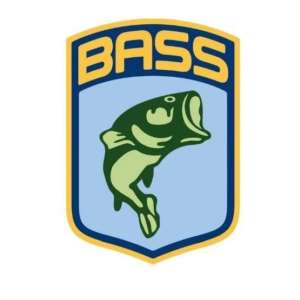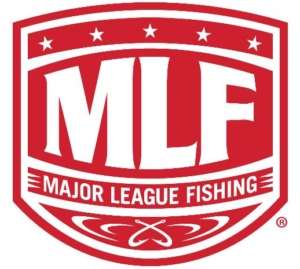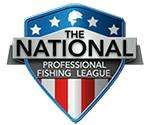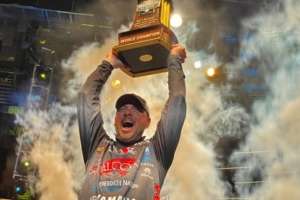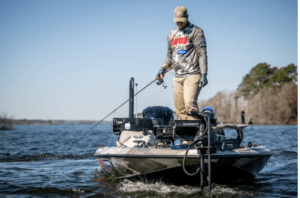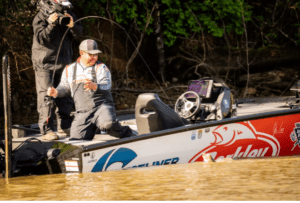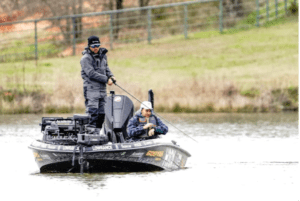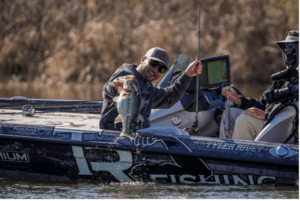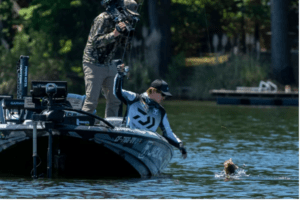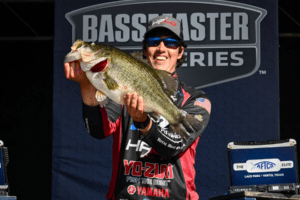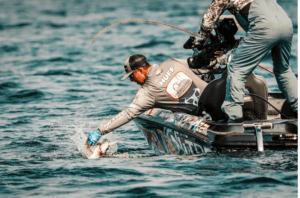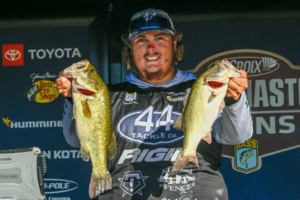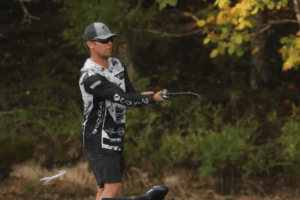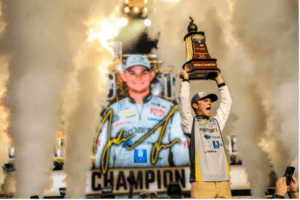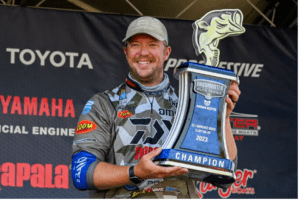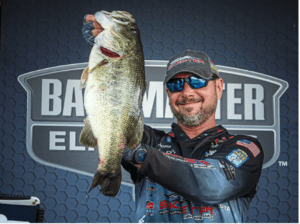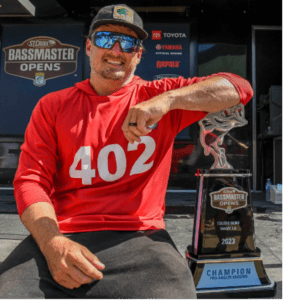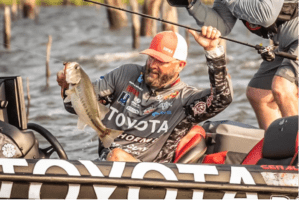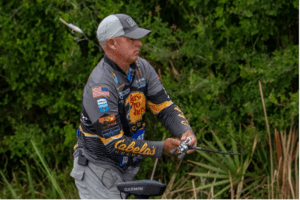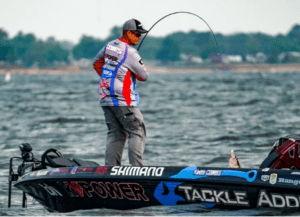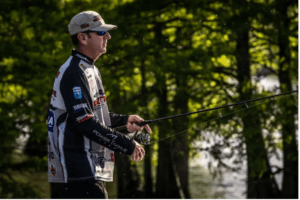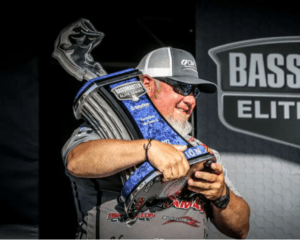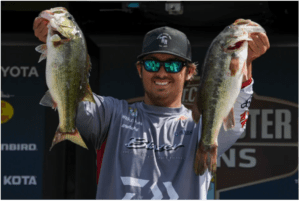
For the second Bassmaster Elite Series event of the season on Lake Fork, there are many anglers who could be successful this time around. With this being a different time of year than the Elites usually visit Lake Fork, don’t be surprised if new anglers who haven’t had success on Lake Fork put the pieces of the puzzle together based on their pre-spawn success at other lakes.
NOTE: At the time of writing this, we do not know which buckets the anglers are going to be put in, so we are listing 10 anglers in no particular order. We chose them based on their history at Lake Fork and other Texas fisheries, signature strengths that could play a role at Lake Fork, and recent success that can cause the momentum train to roll. We did this because Toledo Bend and Lake Fork are back-to-back events. Click here to check out our Toledo Bend picks.
Let’s dive into it!
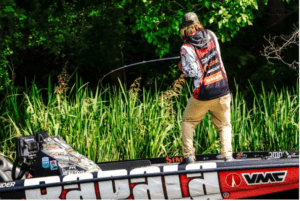
(Photo courtesy of Bassmaster)
The 2021 Bassmaster Elite Series AOY champ had a disappointing year last season finishing 55th place in the AOY standings, his worst finish since his rookie year in 2015. He will be looking to rebound in 2024, and the first 2 events at the beginning of the season could suit well for his strengths. It is also important to note that his last 4 finishes on Lake Fork are 25th, 6th, 11th, and 12th. These are all great finishes, which gives him a reason to do well in this event.
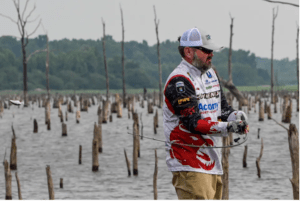
(Photo courtesy of Bassmaster)
When it comes to fishing in Texas, there is no doubt that Greg Hackney could be a huge player. He has fished two Bassmaster events on Lake Fork, finishing 38th and 13th. It is also important to note that Lake Fork is usually visited in the post-spawn when the bigger fish are usually offshore. He is also a shallow water fisherman which could be beneficial for him this time of year, especially if there is a warming trend. Expect him to do even better at Lake Fork this time around with the fish moving up to shallow areas getting ready to spawn soon. Of Hackney’s 65 Bassmaster top 10 finishes, 10 of them were in Texas. He has had more top 10s in Texas than any other state. Just know if you do decide to pick him, he will be one of the higher-percentage picks, so you won’t be the only one betting on him!
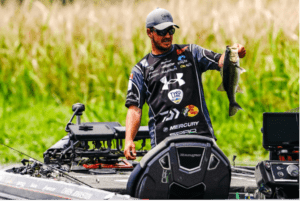
(Photo courtesy of Bassmaster)
When the last name Johnston is heard, it is usually seen on the leaderboard at northern fisheries. This is proven as 10 of his 18 Bassmaster top 10 finishes has been during the northern swing at the tail end of the season. However, 4 of his top 10 finishes have been in Texas, and 2 of them were on Lake Fork the last 2 times the Elite Series visited there in 2021 and 2022. Because of his recent success on the lake, it could be wise to pick Johnston this time around.
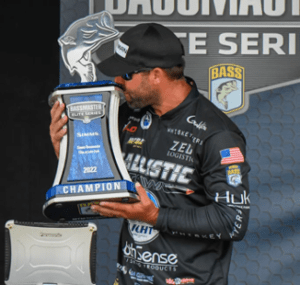
(Photo courtesy of Bassmaster)
It is no secret that Lee Livesay is the favorite to win this event. Why is this? Perhaps it is because he won the last 2 Elite Series events held on Fork. He has fished 4 Elite Series events on Lake Fork and has finished in the top 10 in 3 of them. If you pick someone else over Livesay, you might know something that other people don’t know!
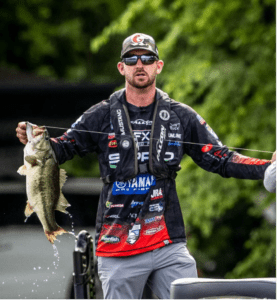
(Photo courtesy of Bassmaster)
Bryan New didn’t have the start to the 2023 season that he wanted as it was a rough start to the first half. However, he had a solid second half of the season which caused him to almost qualify for the Bassmaster Classic being the third man out. Because momentum is a huge factor in tournament success, expect Bryan New to start out the 2024 season with a bang. His previous event on Lake Fork resulted in a 6th place finish, so he has had recent success on the lake. Bryan New is a junk fisherman which can either benefit him or hurt him, so it could be a gamble picking him. However, we are confident that New will have a much better start to the season than he had last year!
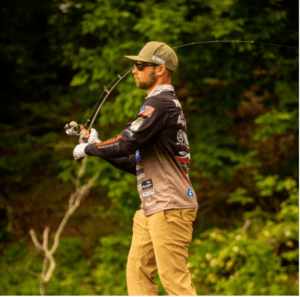
(Photo courtesy of Bassmaster)
The 2022 Bassmaster Elite Series AOY champ had a less than average season last year for his standards even though he still qualified for the Classic. When it comes to fishing on Lake Fork, he has had great success there as his past finishes are 2nd, 14th, and 4th. He has also won an Elite Series event at Sam Rayburn Reservoir. Expect Palaniuk to continue his success in Texas and make another run at AOY this season.
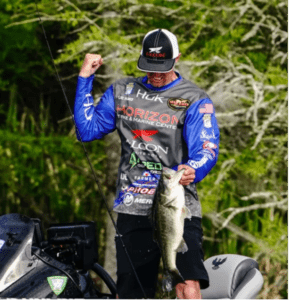
(Photo courtesy of Bassmaster)
Luke Palmer had a stellar season in 2024 as he won an Elite Series event, finished 2nd in another, and had a 15th place AOY ranking. Palmer just finished up his 5th season as a professional angler, and he seems to be improving each year. He will tell you that he prefers shallow water techniques, and this event could set up well for him.
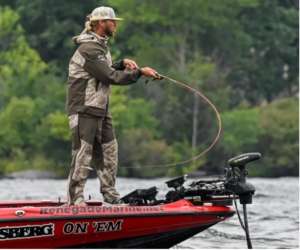
(Photo courtesy of Bassmaster)
Matt Robertson had a great season in 2024 finishing 11th in the AOY standings. He has the momentum train rolling as his last 2 events of 2023 were a 12th and a 10th place finish. He finished in 17th place at Lake Fork in 2022 and 40th place at Lake Fork in 2021. When it comes to Matt Robertson’s strengths, he loves throwing a big swimbait and fishing offshore, which can both play a role this time of year for pre-spawn bass.
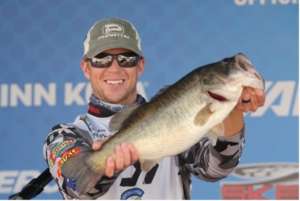
(Photo courtesy of Bassmaster)
Patrick Walters has all the reasons going for him as to why he should be one of the top picks for the first two events, especially on Fork. He had a great season last year finishing 3rd in the AOY standings, he is fresh off a win and a 7th place finish in the last two events of last season, and he has a 1st and a 2nd place finish out of the 4 Elite tournaments he has competed in on Lake Fork.
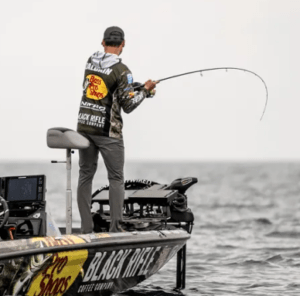
(Photo courtesy of Bassmaster)
Big swimbaits could always be a key player at Texas fisheries, and there is no doubt that Chris Zaldain is confident throwing them. While he was previously from California, Zaldain now lives in Texas. He has fished 4 Elite Series events on Lake Fork and his finishes were 40th, 5th, 13th, and 13th. While he did not have the season he wanted in 2023, he has some momentum rolling as his last 2 events last season resulted in solid 13th and 28th place finishes.


